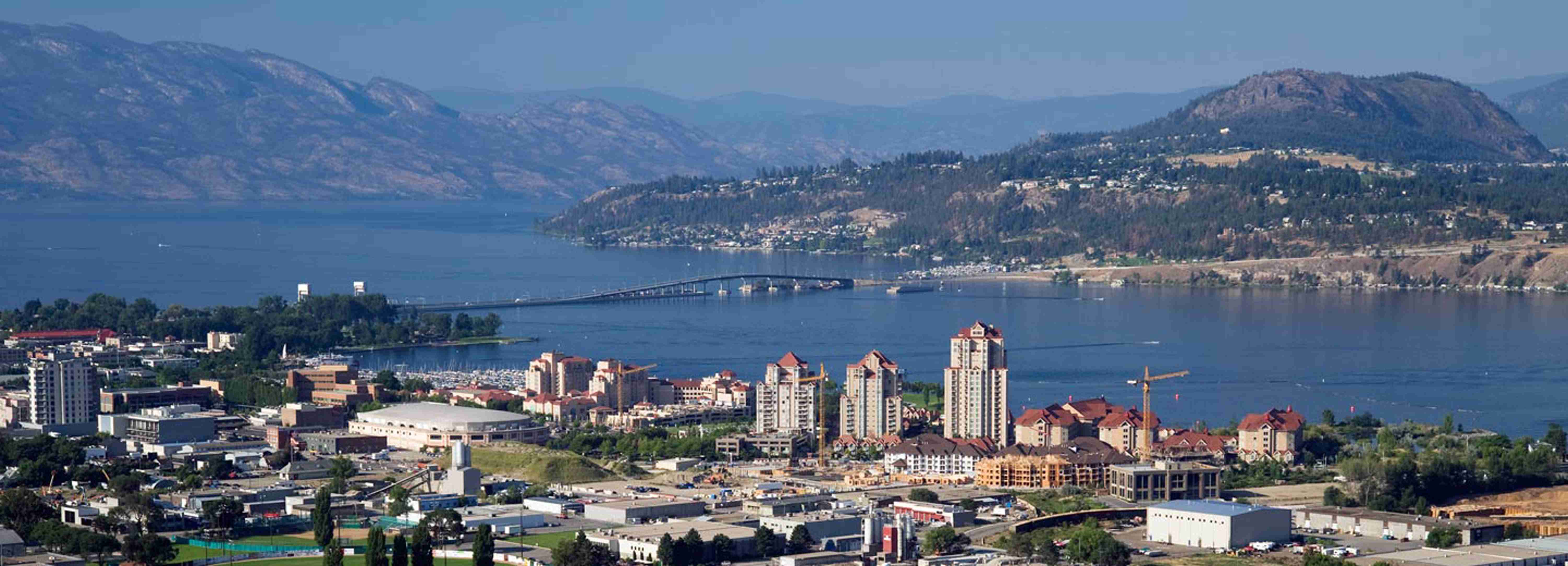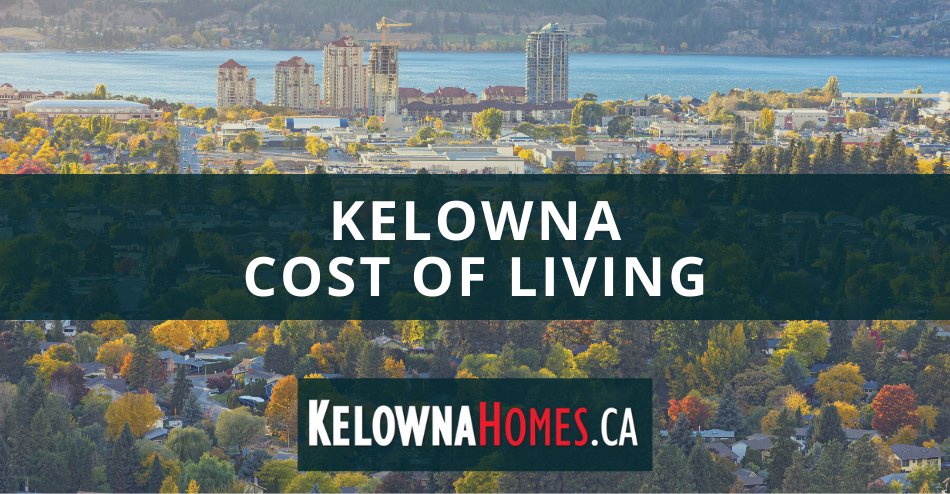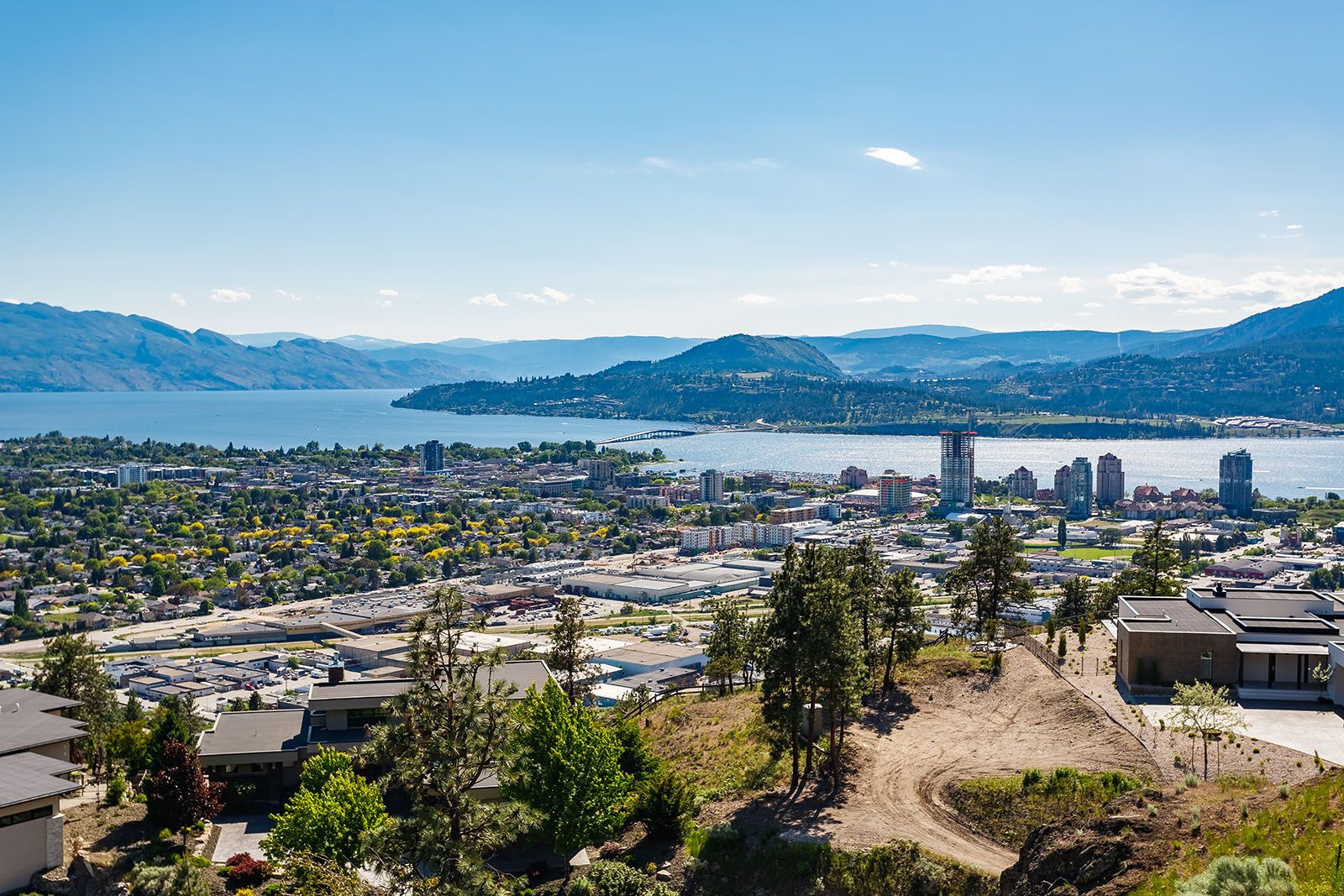Moving To Kelowna From Ontario
Making the move from Ontario to Kelowna can be a thrilling adventure, but it's not without its challenges. Leaving behind the familiar landscapes and comforts of the east coast, you'll embark on a journey to the picturesque Okanagan Valley, where the majestic mountains meet the sparkling lakes. As you trade in the hustle and bustle of Ontario's urban centers for the laid-back charm of Kelowna, you'll discover a unique blend of small-town warmth and big-city amenities. In this article, we'll guide you through the essential steps and considerations to make your relocation to Kelowna a seamless and successful one.

Embracing the West Coast Lifestyle: A Comprehensive Guide to Moving to Kelowna from Ontario
Moving to Kelowna from Ontario can be a significant change, but with the right information, you can make a seamless transition to this beautiful city on the west coast. Here's a detailed guide to help you navigate the process:
Understanding the Cost of Living in Kelowna
One of the primary concerns when moving to a new city is the cost of living. Kelowna has a relatively high cost of living compared to other cities in Canada, mainly due to the real estate market. However, the cost of living in Kelowna is still lower than in many major cities in Ontario. Here's a breakdown of the average costs:
| Category | Kelowna | Ontario (average) |
|---|---|---|
| Rent (1-bedroom apt) | $1,300 - $1,800/month | $1,800 - $2,500/month |
| Food | $800 - $1,200/month | $1,000 - $1,500/month |
| Transportation | $200 - $500/month | $300 - $600/month |
| Utilities | $150 - $300/month | $200 - $400/month |
Job Opportunities in Kelowna
Kelowna has a thriving economy, with a strong focus on industries like tourism, healthcare, and technology. While the job market may not be as robust as in larger cities like Toronto or Vancouver, there are still plenty of opportunities to be found. Some of the top employers in Kelowna include: Interior Health University of British Columbia (Okanagan campus) City of Kelowna Tourism Kelowna Okanagan College
Housing Options in Kelowna
Finding the right housing option in Kelowna can be competitive, but there are various choices available. From apartments to single-family homes, here are some popular options: Renting: Renting is a great option for those who want to explore the city before committing to buying a home. You can find apartments, houses, or townhouses through online platforms or local real estate agents. Buying: If you're looking to put down roots, buying a home in Kelowna can be a great investment. The average home price in Kelowna is around $700,000, but prices vary depending on location, size, and amenities. Suburbs: If you're looking for a more affordable option, consider exploring suburbs like West Kelowna, Lake Country, or Peachland.
Getting Around Kelowna
Kelowna has a relatively compact downtown area, making it easy to get around without a car. Here are some transportation options: Public Transit: Kelowna has a comprehensive public transit system, including buses and a handy transit app to plan your route. Biking: With its scenic bike trails and mild climate, Kelowna is a cyclist's paradise. You can rent bikes or join a bike-sharing program. Walking: Kelowna's downtown area is highly walkable, with plenty of pedestrian-friendly streets and sidewalks.
Things to Do in Kelowna
Kelowna offers a wide range of activities and attractions, ensuring you'll never be bored. Here are some popular things to do: Wine Tasting: The Okanagan Valley is famous for its wineries, with over 200 wineries in the region. Take a wine tour or simply enjoy a tasting at a local vineyard. Outdoor Activities: Kelowna is surrounded by natural beauty, with opportunities for hiking, biking, skiing, and water sports. Cultural Events: Kelowna hosts various cultural events throughout the year, including the Kelowna Farmers' Market, Okanagan Fest of Ale, and Centre of Gravity Festival.
Is it worth moving to Kelowna?

Kelowna, a city in the Okanagan Valley of British Columbia, Canada, is a popular destination for people looking to relocate. With its stunning natural beauty, mild climate, and abundance of outdoor activities, it's no wonder why. But, is it worth moving to Kelowna?
Pros of Moving to Kelowna
Kelowna offers a high quality of life, with plenty of benefits that make it an attractive place to live. Here are some of the pros:
Natural Beauty: Kelowna is surrounded by stunning natural scenery, including Okanagan Lake, mountains, and vineyards. Residents can enjoy a range of outdoor activities, such as hiking, biking, and water sports.
Mild Climate: Kelowna has a mild climate, with warm summers and mild winters. This makes it an ideal location for people who want to escape harsh weather conditions.
Thriving Economy: Kelowna has a strong economy, with a growing tech industry, a thriving tourism sector, and a robust agricultural industry. This provides plenty of job opportunities for residents.
Cons of Moving to Kelowna
While Kelowna is a great place to live, it's not without its drawbacks. Here are some of the cons:
High Cost of Living: Kelowna has a high cost of living, with expensive housing, food, and transportation costs. This can make it challenging for people to afford the lifestyle they want.
Traffic and Congestion: Kelowna is a popular tourist destination, which can lead to traffic and congestion, especially during peak season.
Seasonal Work: Some industries in Kelowna, such as tourism and agriculture, are seasonal, which can lead to uncertainty and fluctuating income for residents.
Things to Consider Before Moving to Kelowna
Before making the decision to move to Kelowna, here are some things to consider:
Research Neighborhoods: Kelowna has a range of neighborhoods, each with its own character and advantages. Researching the different areas can help you find the best fit for your lifestyle and budget.
Job Opportunities: While Kelowna has a strong economy, job opportunities can be limited in certain industries. Researching the job market and having a clear career plan can help you succeed.
Lifestyle Expectations: Kelowna is a smaller city, and the pace of life can be slower than in larger cities. Understanding what you want from your lifestyle and what you're willing to compromise on can help you make an informed decision.
Is Kelowna cheaper than Toronto?
Kelowna and Toronto are two cities in Canada that differ significantly in terms of cost of living. Overall, Kelowna is considered to be cheaper than Toronto.
Housing Costs
One of the most significant differences between Kelowna and Toronto is the cost of housing. The average house price in Kelowna is around $630,000, while in Toronto, it's around $1,000,000. Rent is also much higher in Toronto, with the average one-bedroom apartment costing around $2,000 per month, compared to around $1,300 in Kelowna.
Transportation Costs
Transportation costs are another area where Kelowna is generally cheaper than Toronto. Gasoline is around 10% cheaper in Kelowna than in Toronto, and car insurance rates are also lower. Additionally, Kelowna has a more compact downtown area, making it easier to get around without a car. Here are some approximate costs for transportation in Kelowna and Toronto:
- Gasoline: $1.20 per liter in Kelowna vs. $1.35 per liter in Toronto
- Car insurance: $1,200 per year in Kelowna vs. $1,800 per year in Toronto
- Monthly public transit pass: $90 in Kelowna vs. $156 in Toronto
Food and Entertainment Costs
Food and entertainment costs are generally lower in Kelowna than in Toronto. Here are some approximate costs for common expenses:
- Meal at a mid-range restaurant: $15-20 per person in Kelowna vs. $25-35 per person in Toronto
- Groceries: 10-20% cheaper in Kelowna than in Toronto
- Movies: $10-12 per ticket in Kelowna vs. $15-18 per ticket in Toronto
Is it expensive to live in Kelowna?

The cost of living in Kelowna, British Columbia, Canada, is relatively high compared to other cities in Canada. The city's proximity to nature, mild climate, and growing economy make it an attractive place to live, which drives up housing costs and prices for goods and services. However, the cost of living in Kelowna can vary depending on factors such as lifestyle, accommodation, and personal choices.
Housing Costs
The largest expense for most people living in Kelowna is housing. The city has seen significant growth in recent years, which has led to an increase in housing prices. The average price of a single-family home in Kelowna is around $700,000, while the average rent for a one-bedroom apartment is around $1,300 per month.
- Average house price: $700,000
- Average rent for a one-bedroom apartment: $1,300 per month
- Average rent for a three-bedroom house: $2,000 per month
Food and Transportation Costs
Food prices in Kelowna are slightly higher than the national average, while transportation costs are relatively low. The city has a public transportation system, and a monthly pass costs around $90. However, owning a car is still a popular choice, and gas prices are around 10-15% higher than the national average.
- Average cost of a meal at a mid-range restaurant: $15-20 per person
- Average cost of a gallon of gas: $4.50
- Monthly public transportation pass: $90
Other Expenses
Other expenses, such as utilities, healthcare, and entertainment, are relatively in line with the national average. However, Kelowna's growing economy and tourist industry have led to an increase in prices for some goods and services.
- Average cost of internet and TV services: $100-150 per month
- Average cost of a gym membership: $50-75 per month
- Average cost of a movie ticket: $15-20
Are people moving away from Kelowna?

The question of whether people are moving away from Kelowna is a complex one, and the answer depends on various factors. While Kelowna has long been a popular destination for tourists and new residents alike, there are some signs that the trend may be shifting.
Reasons for Leaving Kelowna
One of the main reasons people may be moving away from Kelowna is the high cost of living. The city has experienced rapid growth in recent years, leading to an increase in housing prices, taxes, and living expenses. This can make it difficult for people, especially those on a fixed income or with lower-paying jobs, to afford to stay in the area.
- The median house price in Kelowna is over $700,000, making it difficult for people to purchase a home.
- Rent prices have also increased significantly, with the average rent for a one-bedroom apartment exceeding $1,500 per month.
- Taxes, including property taxes and sales taxes, are also higher in Kelowna compared to other cities in British Columbia.
Lifestyle Changes and Preferences
Another reason people may be moving away from Kelowna is a desire for a change in lifestyle or living situation. Some individuals may be looking for a more urban or fast-paced environment, while others may prefer a quieter, more rural setting. Kelowna's growing population and increased traffic congestion may also be driving people to seek out alternative locations.
- Some people may be seeking a more vibrant cultural scene, with access to more museums, theaters, and cultural events.
- Others may prefer a smaller, more close-knit community, where they can get to know their neighbors and feel a stronger sense of belonging.
- Still, others may be looking for a more affordable and laid-back lifestyle, with access to outdoor recreational activities and a slower pace of life.
Age and Demographics
Demographic changes may also be contributing to people moving away from Kelowna. As the population ages, younger people may be leaving the area in search of better job opportunities, educational institutions, or social connections.
- Kelowna has an aging population, with a median age of 45.4, compared to 41.5 for the province as a whole.
- Younger people may be moving to larger cities, such as Vancouver or Toronto, for better job prospects and career advancement opportunities.
- Students may be leaving Kelowna to attend universities or colleges in other parts of the country, and choosing not to return after graduation.
FAQ
What are the top things to consider when moving from Ontario to Kelowna?
When making the move from Ontario to Kelowna, there are several key factors to take into account. Cost of living is a significant consideration, as Kelowna has a higher cost of living compared to many parts of Ontario. You'll want to research the housing market and factor in the cost of transportation, food, and other living expenses. Additionally, consider the job market and career opportunities in your field, as well as the culture shock you may experience moving from a larger province to a smaller city.
How do I get around Kelowna without a car?
While having a car can be convenient, it's not necessary in Kelowna. The city has a public transportation system that includes buses and a downtown shuttle, making it easy to get around without a vehicle. You can also take advantage of bike-share programs and walking trails to explore the city on foot or by bike. If you need to travel longer distances, car-sharing services and taxi companies are available. With some planning, you can easily navigate Kelowna without a car.
What are the job opportunities like in Kelowna?
Kelowna has a growing tech industry, as well as a strong presence of healthcare, tourism, and agriculture sectors. While the job market may not be as large as in Ontario, there are still many opportunities available, particularly for those with in-demand skills. Additionally, the city is home to Okanagan College and University of British Columbia Okanagan, which can provide access to education and training for those looking to upskill or reskill. With a little persistence and creativity, you can find a fulfilling career in Kelowna.
How do I adjust to the smaller community in Kelowna?
Moving from a larger province like Ontario to a smaller city like Kelowna can be a significant adjustment. To make the transition smoother, get involved in your community by joining clubs or groups that align with your interests. Attend local events and festivals to meet new people and get a feel for the city's culture. You can also volunteer for causes you're passionate about, which can help you build connections and feel more at home in your new community. With time and effort, you can build a strong network of friends and feel a sense of belonging in Kelowna.
